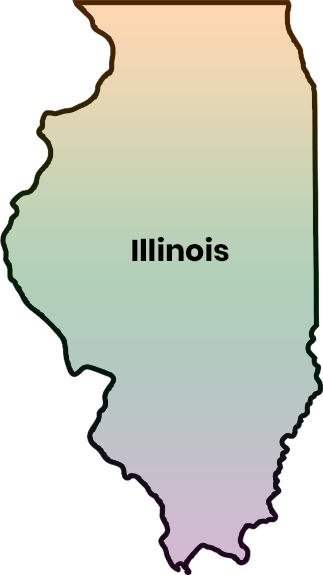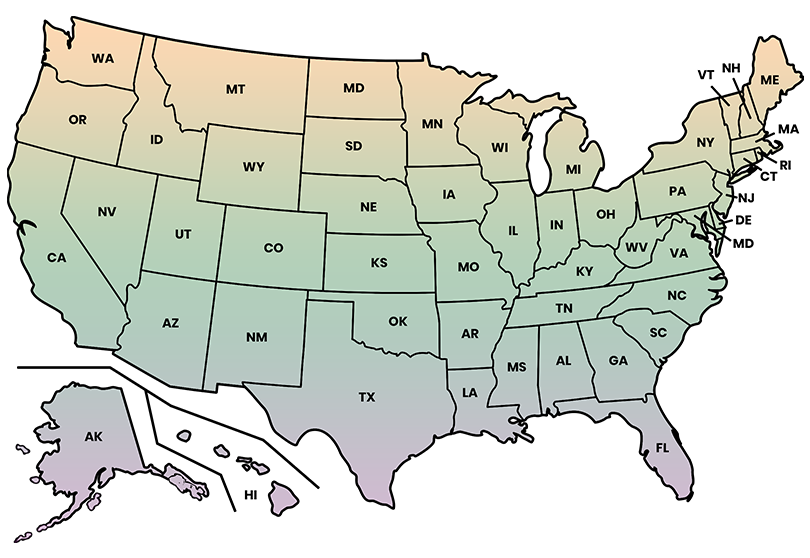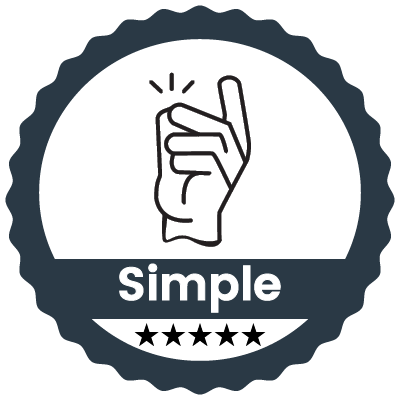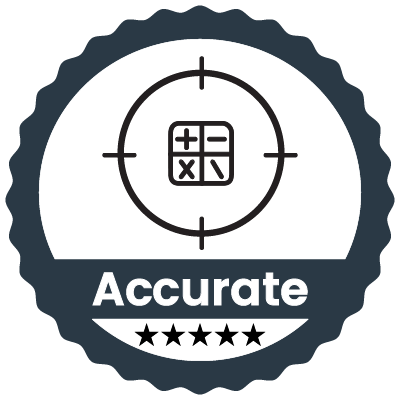If your business operates in Illinois, it's crucial to understand the regulations surrounding pay stubs for both employees and contractors.
This guide outlines the laws and regulations that Illinois employers need to comply with when it comes to payroll processing and providing pay stubs.

Pay stub regulations in Illinois
1. Are pay stubs required by law in Illinois?
Employers in Illinois must provide their employees with pay stubs every payday.
2. How often do you need a pay stub in Illinois?
You will need to pay your employees semimonthly. As pay stubs are mandatory in Illinois, you will need to provide pay stubs every time you pay your employees.
3. What information can be included on a pay stub in Illinois?
The following information must be included in employee pay stubs:
- Employee information such as name, last 4 digits of social security number, and address
- Employer information such as name, employer identification number (EIN), and address
- The number of regular and overtime hours worked during the pay cycle
- Rate of pay
- Overtime pay
- Gross wages
- Itemized deductions for the pay cycle
- Year to date Itemized deductions
4. Does Illinois have a state income tax?
Yes, state income taxes are applicable to employees in the state of Illinois.
5. Are there any other taxes applicable to Illinois?
No. There are no local taxes in addition to federal and state income taxes applicable to employees in the state of Illinois.
Information needed to generate pay stubs
To provide employees with accurate pay stubs, the information below is required.
- Employee’s exemption status from state withholding
- Basic allowances, additional state withholding, and additional allowances.
Illinois wage and hour laws
Illinois labor laws mandate that employers must ensure non-exempt workers receive fair compensation, including at least minimum wage, proper payment for overtime hours, adequate meal and rest breaks, and accrual of appropriate paid time-off benefits.
Illinois employment laws encompass a broad spectrum of regulations governing various aspects of the employer-employee relationship.
Illinois Minimum wage
Starting January 1, 2025, the minimum wage in Illinois will be $15.00 per hour for workers aged 18 and older. Employers who pay gratuities to their employees, such as tips, may pay 60% of the minimum wage, which is $9.00 per hour for tipped workers. Youth workers under the age of 18, working less than 650 hours annually, will earn $13.00 per hour.
Employers may also apply for licenses to pay sub-minimum wages to certain workers, such as those with physical or mental limitations, or to learners.
Overtime Pay
Employers are required to compensate employees at a rate of time and one-half their regular pay if they work more than 40 hours in a workweek. However, this does not extend to legal holidays or Sundays. If an employee works these days and exceeds 40 hours in a workweek, they are still entitled to time and one-half pay for those extra hours. However, if an employer has a policy that offers time and one-half or double-time pay for holidays or Sundays, they must adhere to that agreement.
Meal break
Employers are prohibited from compelling employees to work through meal breaks. Therefore, employees must be allowed to take a meal break for every 7.5 hours worked, no later than 5 hours after the start of the shift. Additionally, an extra 20-minute meal break must be provided for shifts lasting 12 hours or more. If an employee works through a meal break, they are entitled to compensation.
Rest break
Illinois does not require employers to provide rest breaks for their employees.
Paid time off and leave
Illinois mandates that employers offer employees various types of leave benefits, including both compulsory and optional options.
| Required Leave | Non-Required leave | |
|---|---|---|
| paid | Unpaid | Paid or Unpaid |
| Voting leave - 2 hours of paid time off | Employers are not obligated to offer paid leave but may need to provide unpaid leave under the federal Family and Medical Leave Act. | Vacation leave |
| Employers with over 50 employees must offer up to two weeks (10 working days) of unpaid bereavement leave. | Sick leave | |
| Military and family military leave | Holiday leave | |
| Jury duty leave | ||
Illinois State payroll taxes 2025
In Illinois, payroll taxes are divided into the following categories:
- Illinois Personal Income Tax(PIT)
- Illinois State Unemployment Insurance (UI)
Illinois Personal Income Tax(PIT)
Illinois imposes state personal income tax rates that fluctuate based on an individual's filing status and income level. Filing statuses comprise Single, Married Filing Separately, Married Filing Jointly, and Head of Household. For Taxable Year 2024, the applicable tax rate in Illinois is 4.95%, applied to income within specific income brackets to determine the corresponding tax amount.
Illinois State Unemployment Insurance (UI) 2025
Illinois enacted the State Unemployment Tax Act (SUTA) to support individuals facing unemployment by providing them with unemployment benefits. This legislation enables the state to collect the required funds to administer unemployment insurance benefits to eligible individuals during times of job loss.
Wage Limitation: In 2025, only the first $13,916 of an employee's annual wages are subject to unemployment insurance contributions.
Contribution Rates for 2025:
- Minimum Rate: 0.750%, calculated as (0.2%×114%) +0.550% Fund Building Rate
- Maximum Rate: 7.850%, calculated as (6.4%×114%) +0.550% Fund Building Rate
Illinois payroll tax filing
- Report of New hire Employees
- Report of Independent Contractors
- Illinois Personal income tax filing (Form IL-1040)
- Quarterly Employer’s Contribution and Wage Report (UI-3/40)
Report of New hire Employees
Employers must report all newly hired employees within 20 calendar days of their start date. Newly hired employees are individuals who are considered employees according to Chapter 24 of the Internal Revenue Code of 1986 and either have not been previously employed by the employer or were previously employed but had a separation of at least 60 consecutive days. Failure to report new hires may lead to a civil penalty of $15 for each unreported individual.
Report of Independent Contractors
Beginning January 1, 2025, Illinois will mandate that all employers report Independent Contractors using the same process as they do for new or returning employees. This involves providing the necessary details about Independent Contractors within 20 calendar days from their start date, mirroring the timeline for regular employees. Employers are also required to include a "Y" indicator to specifically identify the individual as an Independent Contractor, distinguishing them from traditional employees.
How to report employee and independent contractor new hires in Illinois?
In Illinois, there are various options for submitting new hire information, offering flexibility in the reporting process.
| Online | Fax | |
|---|---|---|
| Employees and independent contractors New Hire Report | Address Information: P.O. Box 19473 Springfield, IL 62794 Public Phone: 800-327-4473 Email: DES.NHire@illinois.gov | Fax 1: 217-557-1947 |
Illinois Personal income tax filing (Form IL-1040)
The initial deadline for submitting your 2024 individual income tax Form IL-1040 and settling any owed taxes is April 15, 2025. If needed, you can request an extension, extending the filing deadline to October 15, 2025. Additionally, you can utilize MyTax Illinois for the electronic filing of your original Individual Income Tax Return.
Quarterly Employer's Contribution and Wage Report (UI-3/40)
According to the regulations set forth by the Illinois Department of Employment Security, employers who had 25 or more employees in the previous calendar year are required to electronically file their Quarterly Employer's Contribution and Wage Report (UI-3/40). The approved methods for filing these reports are exclusively through the MyTax Illinois website, the Fed/State Employment Taxes Program (FSET), or File Transfer Protocol (FTP) for larger employers or multi-account filers. Employers with fewer than 25 employees may submit paper reports using the Employer's Contribution and Wage Report UI-3/40 form. Domestic Employers who file annually should use the Report for Household Employers UI-HA form.
| Reporting Period | Due Date |
|---|---|
| Quarter 1 (January - March) | April 30 |
| Quarter 2 ( April - June) | July 31 |
| Quarter 3 ( July - September) | October 31 |
| Quarter 4 ( October - December) | January 31 |
Monthly wage reports
Employers who had a combined total of 25 or more employees in the previous calendar year must electronically submit monthly wage reports. In addition to the regular quarterly contribution and wage reports, employers are obligated to file eight additional monthly wage reports. These monthly reports are exclusively filed electronically through MyTax Illinois, the Department's online tax filing and wage reporting platform. Monthly reports are mandatory for the first and second months of each quarter: January and February, April and May, July and August, October and November. It' important to note that there is no option for manual entry of the monthly wage reports.
| Reporting Month | First date of upload eligibility | The final date of a timely report without penalty | The final date of the report with a penalty |
|---|---|---|---|
| January | January 16th | February 28th / 29th | March 31st |
| February | February 16th | March 31st | April 30th Include resubmission data within the Quarterly report |
| March | No report for the last month of the quarter is to be submitted. The last month of the quarter is to be included in the quarterly report. | ||
| April | April 16th | May 31st | June 30th |
| May | May 16th | June 30th | July 31st Include resubmission data within the Quarterly report |
| June | No report for the last month of the quarter is to be submitted. The last month of the quarter is to be included in the quarterly report. | ||
| July | July 16th | August 31th | September 30th |
| August | August 16th | September 30th | October 31st Include resubmission data within the Quarterly report |
| September | No report for the last month of the quarter is to be submitted. The last month of the quarter is to be included in the quarterly report. | ||
| October | October 16th | November 30th | December 31st |
| November | November 16th | December 31st | January 31st Include resubmission data within the Quarterly report |
| December | No report for the last month of the quarter is to be submitted. The last month of the quarter is to be included in the quarterly report. | ||
Have all the information handy?
With SecurePayStubs, you can calculate accurate federal and Illinois state taxes for your employees and generate pay stubs securely.
Processing payroll manually is complex
As a business owner who runs payroll manually, you will need to keep up with ever-changing payroll laws. You already have a lot on your plate and you might not want to get into the complex process of pay stub generation.
SecurePayStubs provides a quick and efficient solution for generating pay stubs for both employees, including accurate federal and Illinois state taxes, and independent contractors. With our paystub generator, you can create pay stubs in less than 2 minutes, ensuring accuracy and compliance.Simply input the essential details of both the employee and employer, choose a complimentary free pay stub template, and allow SecurePayStubs to accurately compute the relevant payroll taxes with our Illinois Payroll Tax Calculator.
Spend less time generating pay stubs and more on your business growth.
This article has been updated from its original publication date of March 12, 2025.




